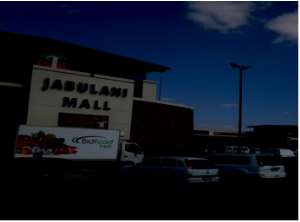
South Africa is referred to as the Rainbow nation super mostly because of the fusion of people of various racial backgrounds who are blended together to make the population of this great economic hub of Africa.
Inside the vast landscape of this Southern African nation lies a place called Soweto, a somewhat and somehow despised and uncelebrated haven of civility, a lounge of cultural diversity and togetherness, a rich valley of blended souls where the world can come and harvest the rare beauty of oneness in humanity.
Deriving its name from the colonial era where it was known as the South Western Townships, Soweto has survived and evolved to become an open palace of civility stretching its arms to embrace the phenomenon of civilization whose scent is already breezing across this Johannesburg Township.
The cultural uniqueness of Soweto is chiefly premised on the rare ability of its residents to effortlessly, fluently and efficiently blend together their diverse languages when conversing in their routine interactions.
Inhabited by people of various ethnic backgrounds, chiefly the Zulu, Suthu, Venda and Tsonga, it is awe striking to see that these people can surprisingly but beautifully converse each using his or her own language and yet conducting a conversation that flows smoothly in sharp contrast to what is generally expected from the traditional language barriers which causes communication breakdowns.
Can you imagine a flowing conversation between a Zulu speaking Zulu, a Suthu speaking Suthu, a Venda speaking Venda? You can find that in Soweto and if you are not familiar with these languages you may think these people are all speaking one language. That’s how deep the Sowetans can blend.
From my observations, I saw that there is a greater possibility that any native Sowetan clearly understands and fluently speaks an average of at least three local languages plus English thus making it possible for any foreign visitor who can at least speak English or any one local language to easily strike a conversation with the people he randomly meets in Soweto.
Besides the beautiful fusion and efficient blending of languages, Soweto has what I can call “social streets” that makes you somehow feel relaxed to explore its terrain despite some negative news that you may have heard about it.
I call them 'social streets' because of the social nature of the people thereof, since they can easily initiate or be drawn into a conversation.
Evidentially, when using public transport, it is actually a norm that a person naturally greets fellow passengers as you enter, whether you are familiar with them or not and quite often people generally greet each other even when passing by a stranger in the streets.
There also still exists a free floating sense of Ubuntu and respect in Soweto as can be witnessed in the degree of order in the queues be it at taxi ranks while people fetch public commuter transport in their different endeavors as well as in the first come first serve behavior of the majority of motorists in the beautiful road network that weaves across its terrain.
Soweto confirms South Africa's rainbow status and further redefines the essence of the rainbow notion by incorporating a local cultural context to the prevailing racial version thus adding some spice to the delicious dish of Mzansi lifestyle.
Besides the beautifully flowing interaction among the native residents thereof, there is also a rare inclination by Sowetans to accommodate and mutually beneficially work with foreign nationals who come to Soweto as either investors, job seekers or home seekers who work in other parts of South Africa.
Brian Kazungu is a freelance journalist and opinion leader.
Email: ka [email protected] , Twitter; @BKazungu




 No need to tax churches – Bawumia
No need to tax churches – Bawumia
 Voter registration: NPP rebukes NDC over request for serial numbers of BVR kits
Voter registration: NPP rebukes NDC over request for serial numbers of BVR kits
 Parliament to summon VRA for failing to dredge Volta estuary for years
Parliament to summon VRA for failing to dredge Volta estuary for years
 Stop the desires for coup d'état — Ghanaians told
Stop the desires for coup d'état — Ghanaians told
 Manhyia Palace bans Tricycle riders on Sunday to climaxes Otumfuo's 25th anniver...
Manhyia Palace bans Tricycle riders on Sunday to climaxes Otumfuo's 25th anniver...
 Blame Supreme Court for limited voter registration challenges – George Opare Add...
Blame Supreme Court for limited voter registration challenges – George Opare Add...
 Excessive partisanship breeds madness — Prof Gyampo on NPP’s defence of cedi dep...
Excessive partisanship breeds madness — Prof Gyampo on NPP’s defence of cedi dep...
 PDS scandal: ‘The totality of Ghana’s loss is the ‘dumor’ being experienced toda...
PDS scandal: ‘The totality of Ghana’s loss is the ‘dumor’ being experienced toda...
 677,140 births and 50,992 deaths recorded in 2022 - Statistical Report
677,140 births and 50,992 deaths recorded in 2022 - Statistical Report
 Ghana’s electoral commission is one that trusts thieves — Omane Boamah
Ghana’s electoral commission is one that trusts thieves — Omane Boamah
